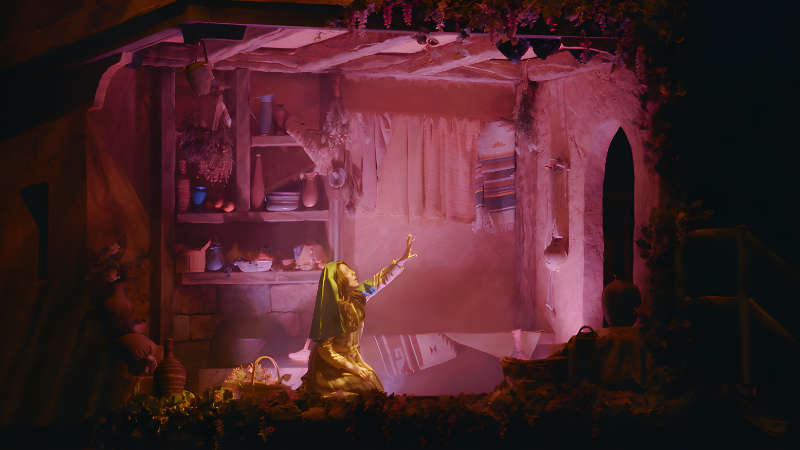Act by which the thrice-holy God declares that the believing sinner becomes righteous and acceptable before Him, because Christ has borne his sin on the cross, having been "done righteousness" in his favor (1 Cor. 1: 30).
Justification is free, that is, totally undeserved (Rom. 3:24); However, it is carried out on a basis of total justice, for God does not simply pass the draft on our sins with contempt for his holy Law.
The demands of his holiness have been fully satisfied in Jesus Christ who, never having broken it, but being Himself completely holy and righteous, bore in our place all the wrath for the broken Law and for all the iniquity of man.
In the time of his "his patience" (the OT), God could seem unjust in not punishing men like David, p. e.g.; Now, having maintained his justice and love on the cross, he can freely justify the wicked (Rom. 3:25-26; 4:5). Jesus justifies us by his blood (Rom. 5:9) and by his pure grace (Tit. 3:7).
Thus, justification is received by faith, and never on the basis of works (Rom. 3:26-30; 4:5; 5:1; 11:6; Gal. 2:16; Eph. 2:8- 10). It is a sovereign act of the One who, in Christ, has called us, justified and glorified us: «Who will accuse God's elect? God is the one who justifies” (Rom. 8:30-34).
The sinner accused by the Law (Gal. 3:10-14), by Satan (Zech. 3:1-5; Rev. 12:10-11) and by his conscience (1 Jn. 3:20), is not only delivered from punishment by the Sovereign Judge: he is declared righteous, and made whiter than snow (Isa. 1:18).
For him there is no longer condemnation (Rom. 8:1), for God sees him in Christ, clothed with the perfect righteousness of his divine Son (2 Cor. 5:21).
The most controversial point over the centuries regarding this wonderful doctrine is the following: Is faith really the only condition of justification, or are good works not necessary along with faith to arrive at it?
There are the most extreme opinions on this topic. Already among the first Christians there were those who thought that they could be content with an intellectual adherence to the evangelical doctrine, without practical consequences regarding their moral life and service.
Paul had to constantly refute this grave error (Rom. 16:1). Chapters 12 to 16 of Romans complete their masterful exposition of salvation by faith by insisting on the reality of works that are the necessary fruit of justification (cf. Gal. 5:16-25; Tit. 2:14; 3 :1, 5, 8, 14, etc.).
As for James, he says exactly the same thing when he states that “faith without works is dead.” The faith that justified Abraham was living, because he produced works; It was for this reason that faith “was made perfect by works” (Rom. 2:17-26).
The argument of the two inspired authors can be summarized as follows: the sinner is justified freely by faith alone, before having been able to carry out any work of any kind (Paul); From the moment he receives the grace of God, his faith produces works that constitute the demonstration of the reality of his justification (James).
If his faith remained without works, it would show that the claim to have such faith was empty: "if anyone" says "that he has faith..." (James 2:14). A wild tree has to be grafted in order for it to produce good fruit; The believer receives a new nature precisely so that he can bear good fruit, and not because little by little he has been producing satisfactory fruit.
But if it does not produce good fruits, it is because there is no nature capable of producing them. There is no faith, it is a dead faith.
The error of confusing justification with sanctification is very common. It is argued that it is not possible to accept that one is justified when imperfections and even falls in the spiritual life remain evident.
The fact is that justification is given to us from the very moment we believe, from the very moment of our new birth. God, in his grace and because of the cross, erases our sins and regenerates us. From that moment the growth of the newborn in Christ begins.
There are the most extreme opinions on this topic. Already among the first Christians there were those who thought that they could be content with an intellectual adherence to the evangelical doctrine, without practical consequences regarding their moral life and service.
Paul had to constantly refute this grave error (Rom. 16:1). Chapters 12 to 16 of Romans complete their masterful exposition of salvation by faith by insisting on the reality of works that are the necessary fruit of justification (cf. Gal. 5:16-25; Tit. 2:14; 3 :1, 5, 8, 14, etc.).
As for James, he says exactly the same thing when he states that “faith without works is dead.” The faith that justified Abraham was living, because he produced works; It was for this reason that faith “was made perfect by works” (Rom. 2:17-26).
The argument of the two inspired authors can be summarized as follows: the sinner is justified freely by faith alone, before having been able to carry out any work of any kind (Paul); From the moment he receives the grace of God, his faith produces works that constitute the demonstration of the reality of his justification (James).
If his faith remained without works, it would show that the claim to have such faith was empty: "if anyone" says "that he has faith..." (James 2:14). A wild tree has to be grafted in order for it to produce good fruit; The believer receives a new nature precisely so that he can bear good fruit, and not because little by little he has been producing satisfactory fruit.
But if it does not produce good fruits, it is because there is no nature capable of producing them. There is no faith, it is a dead faith.
The error of confusing justification with sanctification is very common. It is argued that it is not possible to accept that one is justified when imperfections and even falls in the spiritual life remain evident.
The fact is that justification is given to us from the very moment we believe, from the very moment of our new birth. Every day there will be progress to be made, victories to be won; The Christian is in the school of God, where day by day he will be corrected for the faults committed, in order to become a participant in the holiness of God thanks to the fullness and power of the Holy Spirit (1 Jn. 1:6- 2:2). (See SANCTIFICATION.)
In the course of the Middle Ages, in the Roman and Greek Orthodox churches, the doctrine of justification by faith was obscured by a false conception of the role of good works.
The cross of Christ was no longer considered sufficient to satisfy all our debt: man must at least satisfy a part of it by his meritorious works, his pilgrimages, by the rites of the church, and his own sufferings in purgatory
It was by rediscovering the luminous teachings of Paul, particularly in the epistles to the Romans and the Galatians, that the Reformers restored to believers the certainty of salvation (see SALVATION) and pointed them to the glorious freedom of the children of God. (See also GALATIANS and JAMES [EPISTLES OF].).
God, in his grace and because of the cross, erases our sins and regenerates us. From that moment the growth of the newborn in Christ begins.
Meaning of JUSTIFICATION
Act by which the thrice-holy God declares that the believing sinner becomes righteous and acceptable before Him, because Christ has borne his sin on the cross, having been "done righteousness" in his favor (1 Cor. 1: 30).







